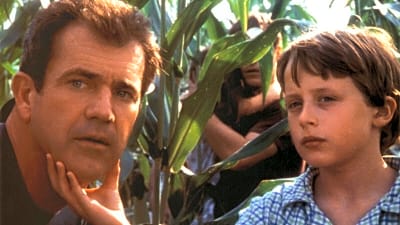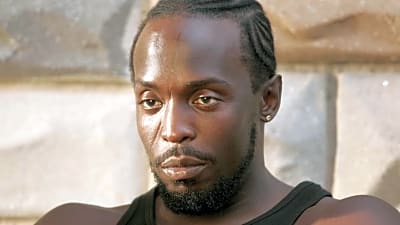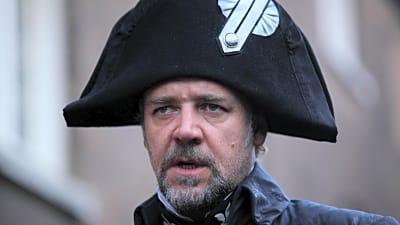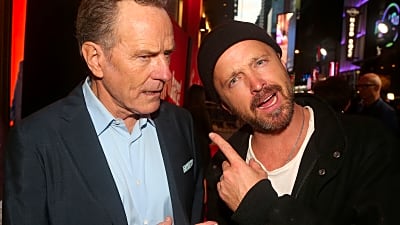- Home
- Quizzes
- My Quiz Activity
- Newsletters
- MY FAVORITES
- Add Sports/Teams
- SPORTS
-
NFL
- NFL Home
- Arizona Cardinals
- Atlanta Falcons
- Baltimore Ravens
- Buffalo Bills
- Carolina Panthers
- Chicago Bears
- Cincinnati Bengals
- Cleveland Browns
- Dallas Cowboys
- Denver Broncos
- Detroit Lions
- Green Bay Packers
- Houston Texans
- Indianapolis Colts
- Jacksonville Jaguars
- Kansas City Chiefs
- Las Vegas Raiders
- Los Angeles Chargers
- Los Angeles Rams
- Miami Dolphins
- Minnesota Vikings
- New England Patriots
- New Orleans Saints
- New York Jets
- New York Giants
- Philadelphia Eagles
- Pittsburgh Steelers
- San Francisco 49ers
- Seattle Seahawks
- Tampa Bay Buccaneers
- Tennessee Titans
- Washington Commanders
-
MLB
- MLB Home
- Athletics
- Arizona Diamondbacks
- Atlanta Braves
- Baltimore Orioles
- Boston Red Sox
- Chicago White Sox
- Chicago Cubs
- Cincinnati Reds
- Cleveland Guardians
- Colorado Rockies
- Detroit Tigers
- Houston Astros
- Kansas City Royals
- Los Angeles Angels
- Los Angeles Dodgers
- Miami Marlins
- Milwaukee Brewers
- Minnesota Twins
- New York Yankees
- New York Mets
- Philadelphia Phillies
- Pittsburgh Pirates
- San Diego Padres
- San Francisco Giants
- Seattle Mariners
- St. Louis Cardinals
- Tampa Bay Rays
- Texas Rangers
- Toronto Blue Jays
- Washington Nationals
-
NBA
- NBA Home
- Atlanta Hawks
- Boston Celtics
- Brooklyn Nets
- Charlotte Hornets
- Chicago Bulls
- Cleveland Cavaliers
- Dallas Mavericks
- Denver Nuggets
- Detroit Pistons
- Golden State Warriors
- Houston Rockets
- Indiana Pacers
- Los Angeles Clippers
- Los Angeles Lakers
- Memphis Grizzlies
- Miami Heat
- Milwaukee Bucks
- Minnesota Timberwolves
- New Orleans Pelicans
- New York Knicks
- Oklahoma City Thunder
- Orlando Magic
- Philadelphia 76ers
- Phoenix Suns
- Portland Trail Blazers
- Sacramento Kings
- San Antonio Spurs
- Toronto Raptors
- Utah Jazz
- Washington Wizards
-
NHL
- NHL Home
- Anaheim Ducks
- Boston Bruins
- Buffalo Sabres
- Calgary Flames
- Carolina Hurricanes
- Chicago Blackhawks
- Colorado Avalanche
- Columbus Blue Jackets
- Dallas Stars
- Detroit Red Wings
- Edmonton Oilers
- Florida Panthers
- Los Angeles Kings
- Minnesota Wild
- Montreal Canadiens
- Nashville Predators
- New Jersey Devils
- New York Islanders
- New York Rangers
- Ottawa Senators
- Philadelphia Flyers
- Pittsburgh Penguins
- San Jose Sharks
- Seattle Kraken
- St. Louis Blues
- Tampa Bay Lightning
- Toronto Maple Leafs
- Utah Mammoth
- Vancouver Canucks
- Vegas Golden Knights
- Washington Capitals
- Winnipeg Jets
- NCAAF
- NCAAM
- Olympics
- Boxing
- Entertainment
- Lifestyle
- Golf
- MMA
- Soccer
- Tennis
- Wrestling
- Sports Betting
- More Sports
- RESOURCES
- My Account
- YB on Facebook
- YB on Twitter
- YB on Flipboard
- Contact Us
- Privacy Policy
- Terms of Service
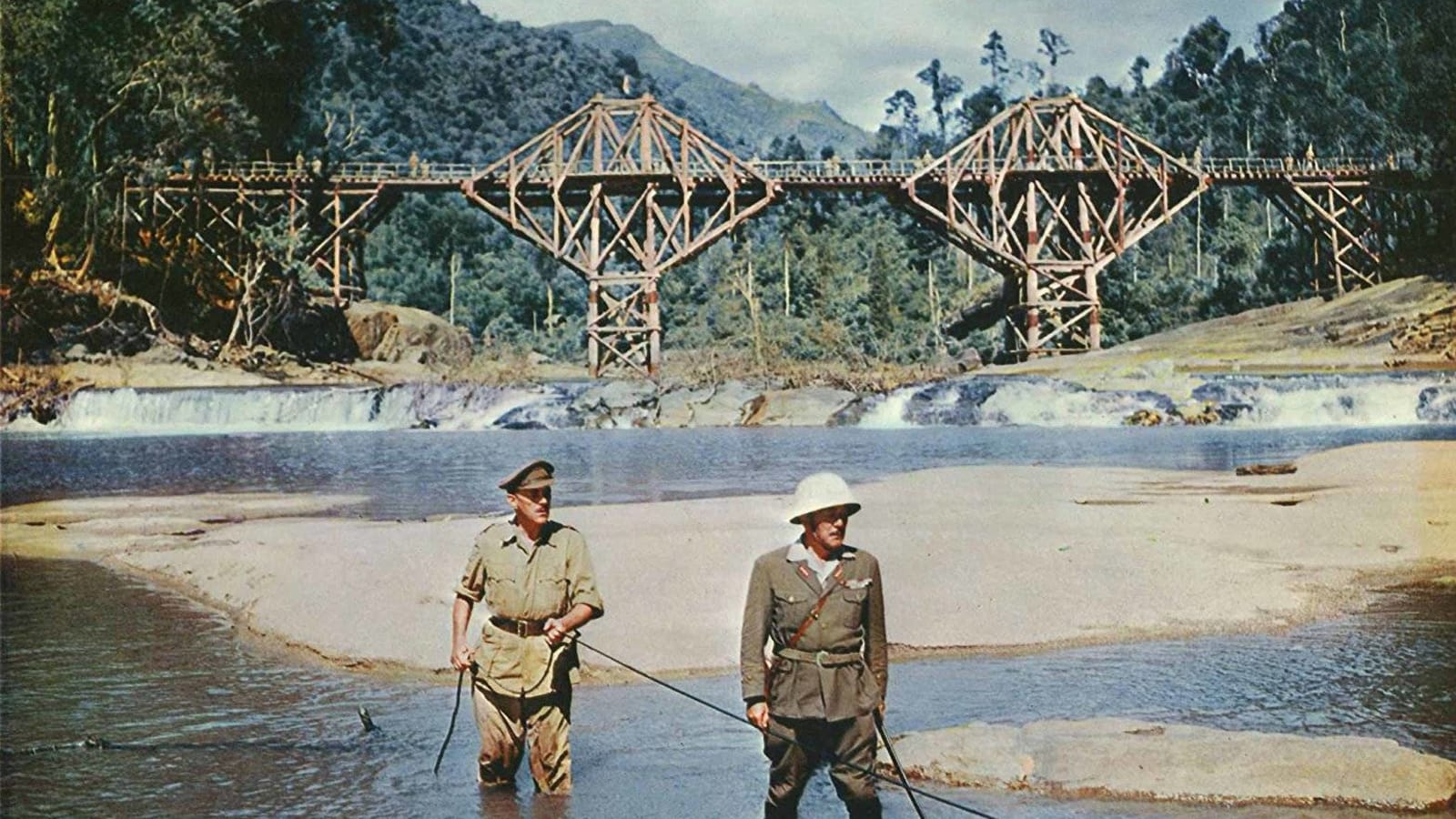
Nov. 11, 2018, is Veterans Day, a time to honor the brave soldiers, officers and other military personnel who put everything on the line to defend the United States of America now and since the days of the Revolutionary War. Plenty of films have been released portraying soldiers and military conflicts both at home and abroad, and the upcoming holiday got us thinking about the best. Although we have many favorites, we instead chose to concentrate on the ones that earned the most and highest praise when it comes to reviews, awards and other accolades. With an emphasis on movies involving American conflicts, here are the most highly decorated war movies of all time.
"Wings" (1927)
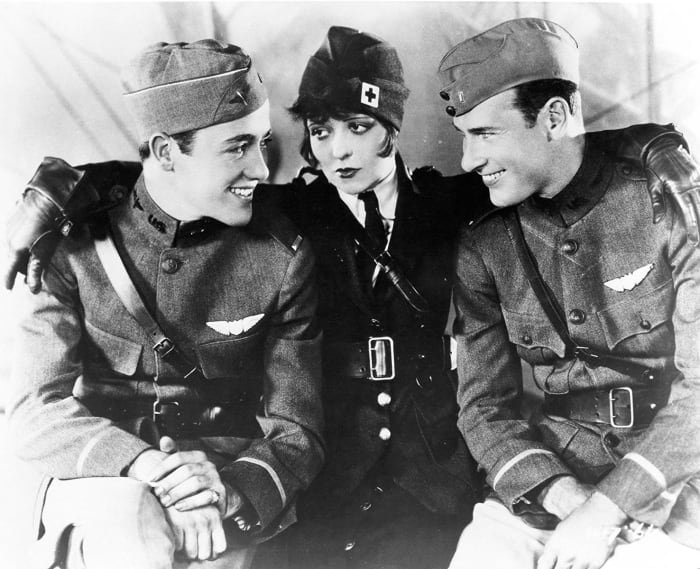
“Wings” celebrated its 90th birthday in 2017, but it still holds up today. After all, the romantic film won the first Best Picture Oscar (then called “Outstanding Production”) at the first Academy Awards in 1929. Starring Clara Bow, Charles "Buddy" Rogers and Richard Arlen, “Wings” focuses on two men — one rich, one poor — who become World War I fighter pilots while competing for the affection of the beautiful Sylvia Lewis (Bow). Praised for its action sequences and realism, the silent film is also remembered for its early depictions of two men kissing and its brief nudity (albeit non-sexual in all instances), as well as launching the career of a young actor named Gary Cooper.
"All Quiet on the Western Front" (1930)
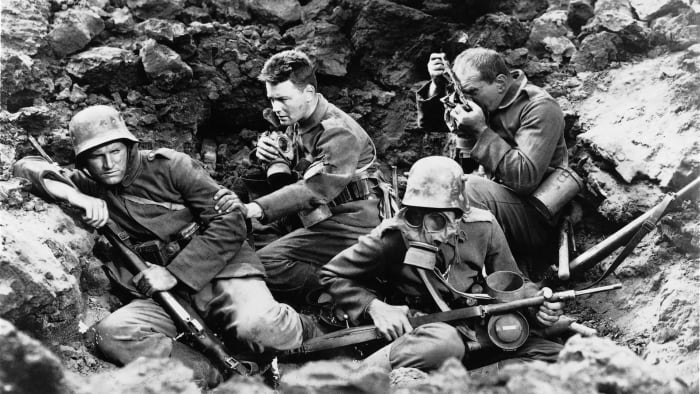
“All Quiet on the Western Front” was penned by Erich Maria Remarque in 1929 and sold 2.5 million copies in just its first 18 months in print. A film version was fast-tracked and released the following year under the direction of Lewis Milestone. Like the novel, the film was also praised for its accurate portrayal of soldiers’ lives on the front lines of World War I, eventually winning Academy Awards for both Outstanding Production and Best Director and also earning two additional nods. However, due to its honest portrayal of the horrors of war, “All Quiet on the Western Front” was banned in several countries, especially in the lead-up to World War II.
"A Farewell to Arms" (1932)

The classic Ernest Hemingway novel “A Farewell to Arms” was released in the same year as “All Quiet on the Western Front” but took a few more years to make it to the big screen. Helen Hayes, Gary Cooper and Adolphe Menjou led the cast of the romantic film about a love affair between an American medic and an English nurse, both of whom are stationed on Italy’s front lines during the First World War. Acclaimed by many critics for being a respectable adaptation of a Hemingway work, “A Farewell to Arms” also won Oscars for Best Cinematography and Best Sound and earned Best Picture and Best Art Direction nods. It was remade in 1957 as a film starring Rock Hudson and Jennifer Jones.
"La Grande Illusion" (1937)

Although it borrows its name from a 1909 book by British journalist and author Norman Angell, “La Grande Illusion” is actually an original movie penned by Belgian screenwriter Charles Spaak and French screenwriter Jean Renoir, the latter of whom also directed the film. Centering on the escape attempts of a group of French officers (led by Jean Gabin, Marcel Dalio and Pierre Fresnay) during World War I and highlighting the differences in European social classes at the time, “La Grande Illusion” earned a win for Best Artistic Ensemble at the 1937 Venice Film Festival, wins for Best Foreign Film at numerous critic award events, a nomination for Best Picture at the 1938 Academy Awards and a ban in France from 1940 until the end of World War II.
"Gone with the Wind" (1939)

“Gone with the Wind” is often referred to as one of the greatest films of all time — and for good reason. The romantic Civil War epic based on the 1936 novel of the same name earned 10 Academy Awards (including Best Picture, Best Director, Best Adapted Screenplay and two honorary honors), preservation in the National Film Registry and the largest box office haul in cinematic history when adjusted for inflation. Starring iconic actors Clark Gable, Vivien Leigh, Hattie McDaniel and Olivia de Havilland (with Leigh and McDaniel winning Oscars for Best Actress and Best Supporting Actress, respectively), “Gone with the Wind” is also one of the longest movies in film history, clocking in at nearly four hours in length. Those four hours are filled with numerous now-famous quotes, including “Frankly, my dear, I don't give a damn,” “After all, tomorrow is another day!” and “As God is my witness, I'll never be hungry again.”
"The Great Dictator" (1940)

For a satirical political comedy, “The Great Dictator” won a great amount of accolades. In addition to being preserved in the National Film Registry, the movie, which was written, produced, directed by and starred Charlie Chaplin, was also nominated for five Academy Awards, including Best Picture, Best Actor and Best Screenplay. Although Chaplin brilliantly spoofed and simultaneously condemned then-reigning dictator Adolf Hitler, the star later expressed regret in making the film, as at the time of its production, he didn’t know the true extent of the horrors that Hitler would eventually commit.
"Mrs. Miniver" (1942)

The greatest accomplishment of 1942’s “Mrs. Miniver” was winning the Best Picture Oscar in a year that was stacked with worthy films, including classic war movies like “The Invaders,” “The Pied Piper,” “Random Harvest” and “Wake Island.” However, instead of focusing on the battlefield, “Mrs. Miniver” looks at how the lives of a British housewife and her family are affected by World War II and the devastating losses they must endure. In addition to the aforementioned accolade, “Mrs. Miniver” also took home Academy Awards for Best Director (William Wyler), Best Actress (Greer Garson), Best Supporting Actress (Teresa Wright), Best Screenplay and Best Cinematography.
"Yankee Doodle Dandy" (1942)

Released and set in the early days of World War II, 1942’s “Yankee Doodle Dandy” is a biopic about famed American playwright George M. Cohan. The author of classic patriotic ditties like “The Yankee Doodle Boy,” “Over There” and “You’re a Grand Old Flag” was portrayed by James Cagney, who actually improvised his famous tap dance toward the end of the film. Having initially turned down the role, Cagney changed his mind after allegations emerged that he was a communist, and the uber-Patriotic film ended up winning him a Best Actor Academy Award. In addition to wins for Best Music, Score and Sound, “Yankee Doodle Dandy” earned five additional nominations.
"Casablanca" (1942)

Humphrey Bogart and Ingrid Bergman proved to be the perfect pair in “Casablanca” as Rick, an American expat running a nightclub in Morocco, and Ilsa, his former flame who unexpectedly walks back into his life one day. Of course, the backdrop of this classic romance film is World War II, and the subplot centers on a set of letters of transit, which are possessed by Rick and highly sought after by those seeking refuge in the United States. Packed with famous lines like “Play it once, Sam,” “Maybe not today, maybe not tomorrow, but soon and for the rest of your life,” and “I think this is the beginning of a beautiful friendship,” the 1942 film won three Oscars (Best Picture, Best Director and Best Screenplay) and is often regarded as one of the greatest movies of all time as well as a personal favorite of many film fans. Here’s lookin’ at you, “Casablanca”!
"For Whom the Bell Tolls" (1943)

Another Ernest Hemingway war novel turned film, “For Whom the Bell Tolls” centers on a different conflict than “A Farewell to Arms”: the Spanish Civil War. Hemingway worked as a reporter in Spain during the conflict, and his accounts of its brutality were channeled through the fictional character of Robert Jordan, an anti-fascist soldier fighting for the Republic. Themes of death and dread run rampant through both the book and film, the latter of which rightfully earned 10 Academy Award nominations, including a Best Supporting Actress Oscar for Katina Paxinou. Paxinou, who played Pilar alongside stars Gary Cooper and Ingrid Bergman, also won Best Supporting Actress at the Golden Globes, with Akim Tamiroff taking home a Best Supporting Actor statue at the same event.
"Watch on the Rhine" (1943)

“Operation Watch on the Rhine” was the name given to the last major German offensive of World War II, which was later dubbed “The Battle of the Bulge.” The former name was later used as the title of a 1941 play by Lillian Hellman, which was adapted by screenwriter Dashiell Hammett into a 1943 film of the same name. “Watch on the Rhine” is the story of a German-born European refugee (Paul Lukas) and his American wife (Bette Davis), who struggle with the fact that some of their friends and family remain stuck in Germany and facing an increasingly dangerous situation. First-time director Herman Shumlin was praised for this beautiful and powerful adaptation, which many critics called even better than the stage version, and Lukas was awarded Best Actor honors at the Academy Awards and Golden Globes. Additionally, “Watch on the Rhine” also had a shot at Best Picture, Best Actress (Lucile Watson) and Best Screenplay Oscars.
"Since You Went Away" (1944)

The plot of the 1944 John Cromwell film “Since You Went Away” is evident from the full title of the book on which it is based: “Since You Went Away: Letters to a Soldier from His Wife.” Claudette Colbert plays the wife, Anne Hilton, and is supported by a star-studded cast featuring Jennifer Jones, Joseph Cotten, Shirley Temple, Lionel Barrymore, Hattie McDaniel and Agnes Moorehead. Although “Since You Went Away” only won a single Oscar for Best Music, the World War II drama actually earned 10 total nominations at the event, including Best Picture, Actress, Supporting Actress and Actor.
"The Best Years of Our Lives" (1946)

Only four years after winning a Best Director Oscar for “Mrs. Miniver,” William Wyler was back in the director’s chair for another huge hit: “The Best Years of Our Lives.” Led by the cast of Myrna Loy, Fredric March, Dana Andrews, Teresa Wright, Virginia Mayo and Harold Russell, the 1946 drama was released just after the end of World War II and dealt with the readjustment of soldiers returning to civilian life. In all, the film won nine Academy Awards, including Wyler’s second of three Best Director Oscars, as well as Best Picture, Actor (March), Supporting Actor (Russell) and writing (Robert E. Sherwood). Outdoing his own success, Wyler topped this achievement in 1959 by winning an astonishing 10 Oscars for “Ben-Hur.”
"Battleground" (1949)

Showcasing heroic and fearless soldiers might sell movie tickets, but that depiction of serving in World War II isn’t always the truth. Many soldiers often deal with urges to desert or give up, and the 1949 war film “Battleground” shows this with each of its protagonists, members of the 101st Airborne Division played by Van Johnson, John Hodiak, James Whitmore, Ricardo Montalban, George Murphy and numerous other familiar faces. Although it failed to win honors for Best Picture or Best Director (William A. Wellman) at the Oscars, “Battleground” took home trophies for Best Cinematography and Best Writing, as well as wins at the Golden Globes for Best Supporting Actor (Whitmore) and Best Screenplay (Robert Pirosh).
"Twelve O’Clock High" (1949)

Like “Battlefield,” “Twelve O’Clock High” showcases World War II through the eyes of a single American military unit, this time the Army’s Eighth Air Force. The 1949 drama is based on a book of the same name by Sy Bartlett and Beirne Lay Jr., who also adapted the screenplay. Although Bartlett and Lay didn’t muster a screenwriting nod at the Oscars, “Twelve O’Clock High” still earned four nominations, taking home Best Supporting Actor (Dean Jagger) and Best Sound Recording honors. The war epic also featured Gregory Peck, Hugh Marlowe, Gary Merrill and Millard Mitchell and was significant enough to land a spot in the National Film Registry.
"Decision Before Dawn" (1951)

George Howe’s novel “Call It Treason” was the inspiration behind the 1951 war film “Decision Before Dawn,” a tale about using intelligence from German POWs to influence U.S. Army strategy near the end of World War II and the issues of trust when dealing with turncoats. Oskar Werner, Hans Christian Blech and Richard Basehart led the strong cast that helped earn “Decision Before Dawn” a Best Picture nod at the 1951 Academy Awards (where it also nabbed a Best Editing nomination), but the film was bested by the Gene Kelly musical “An American in Paris.”
"From Here to Eternity" (1953)

“From Here to Eternity” is mostly remembered for its iconic beach scene in which Burt Lancaster and Deborah Kerr lock lips in the sand as the incoming tide rushes around them, which makes it easy to forget that the 1953 release is actually a war film. OK, it’s mostly about love affairs and rivalries within the armed forces, but the setting is Hawaii in the middle of World War II. Lancaster and Kerr are just two of the big names in “From Here to Eternity,” which also features Montgomery Clift, Donna Reed, Frank Sinatra, Ernest Borgnine, Jack Warden and an uncredited George Reeves. The film was a critical and theatrical hit, bringing in more than $30 million and earning 11 Academy Award nominations, including wins for Best Picture, Best Director (Fred Zinnemann), Best Supporting Actor (Sinatra) and Best Supporting Actress (Reed), as well as Golden Globe wins for Zinnemann and Sinatra.
"The Caine Mutiny" (1954)

When the USS Caine’s unstable leader (Humphrey Bogart) is relieved of command during a tense mission, two members of the ship’s crew (Van Johnson and Robert Francis) later find themselves facing a court martial in the 1954 naval drama “The Caine Mutiny.” Although it was based on a Pulitzer Prize-winning novel and garnered seven Academy Award nods (including Best Picture, Best Actor for Bogart and Best Supporting Actor for Tom Tully), “The Caine Mutiny” failed to win a single one, partially due to the Oscar success of “On the Waterfront.”
"Mister Roberts" (1955)

With a cast of Henry Fonda, James Cagney and Jack Lemmon, how can you go wrong? “Mister Roberts” certainly didn’t, as the World War II comedy-drama (based on a 1946 book by Thomas Heggen and a 1948 Broadway play) earned more than $21 million at the box office and three Oscar nominations. The critically acclaimed film landed a spot in the Best Picture category as well as received nods for Best Sound and Best Supporting Actor, with the latter won by Lemmon.
"The Bridge on the River Kwai" (1957)

The 30th Academy Awards was practically an extended celebration for the epic war drama “The Bridge on the River Kwai,” which earned statues for Best Picture, Best Director (David Lean), Best Actor (Alec Guinness), Best Adapted Screenplay, Best Music, Best Editing and Best Cinematography. Although author Pierre Boulle was given the screenplay award for penning the novel on which the movie was based, 1952’s “Le Pont de la Rivière Kwaï,” it was later revealed that the script was actually the work of Carl Foreman and Michael Wilson, two blacklisted screenwriters living in exile in London.
"Sayonara" (1957)

“Sayonara” won Academy Awards for Best Supporting Actor (Red Buttons), Best Supporting Actress (Miyoshi Umeki), Best Art Direction and Best Sound. It was praised for its cast (which also included Marlon Brando), director (Joshua Logan), writing, editing and cinematography, all of which earned Oscar nods along with a Best Picture nomination. But the biggest achievement of “Sayonara” might be its pleas for, and advancement of, racial tolerance, as much of the 1957 drama deals with interracial marriages between U.S. military personnel and their Japanese brides. After all, when the heroic character of Major “Ace” Gruver (Brando) is asked by a reporter how he’ll explain his impending marriage to Hana-ogi, he coolly replies, “Tell ‘em we said, ‘Sayonara.’”
"The Diary of Anne Frank" (1959)

Adapting a heart-wrenching true story like “The Diary of Anne Frank” into a film is a delicate process, but in 1955 the writings were first made into a play (which subsequently won the Pulitzer Prize), making the transition to film a bit easier. Millie Perkins portrayed the young Anne in the 1959 movie — alongside Joseph Schildkraut, Shelley Winters and Richard Beymer — but the role was initially offered to Audrey Hepburn, who bore a striking resemblance to an adolescent Anne, according to her father, Otto Frank. Hepburn said she was honored to be considered but felt she was too old for the role. “The Diary of Anne Frank” went on to win two of its eight Oscar nominations, one of its six Golden Globe nods and a Writers Guild of America Award for Best Written American Drama.
"Judgment at Nuremberg" (1961)

The first true courtroom drama in this slideshow, “Judgment at Nuremberg” was a fictionalized look at one of the 12 military tribunals tasked with convicting Nazi war criminals between 1946 and 1949. Spencer Tracy and Burt Lancaster received top billing for the 1961 film, but it also featured Judy Garland and William Shatner in supporting roles. Directed by Stanley Kramer and written by Abby Mann (who also penned the “Playhouse 90” installment on which the movie was based), “Judgment at Nuremberg” earned critical acclaim and a whopping 11 Academy Awards. Although the drama appeared in every major category, it left with just two: Best Actor (Maximilian Schell) and Best Adapted Screenplay.
"Lawrence of Arabia" (1962)

Another film oft-cited as one of the greatest of all time, “Lawrence of Arabia” is an epic in every sense of the word. In addition to spanning nearly four hours in length, the film also contains breathtaking visuals, an enviable score and top-notch performances by an all-star cast of Peter O’Toole, Omar Sharif, Alec Guinness, Claude Rains, Jack Hawkins, Anthony Quayle, Anthony Quinn and Arthur Kennedy. Oh, and it grossed $70 million, cashed in on seven of its 10 Oscar nominations and six of its eight Golden Globe nominations (including Best Picture and Director at both) and, of course, will be forever preserved in the National Film Registry.
"The Sound of Music" (1965)

Who doesn’t know “The Sound of Music?" From songs like “Do-Re-Mi” and “Sixteen Going on Seventeen” to “My Favorite Things” and “So Long, Farewell,” even folks who haven’t seen the movie still know the music. Those who know nothing of the upbeat songs’ source might be a little surprised to find out they come from a musical about a family fleeing from Nazis. But that certainly didn’t hinder sales of the soundtrack, which sold 20 million copies and was recently named by Billboard as the second-best album of all time. “The Sound of Music” also nabbed five Oscars (including Best Picture, Director and Music) and two Golden Globes. Although star Julie Andrews was snubbed at the former, she won big at the latter.
"Doctor Zhivago" (1965)

After a short break from romantic films, we’re back with 1965’s “Doctor Zhivago,” the story of a married physician who pines for the wife of another man in the lead-up to World War I, the Russian Revolution and subsequent civil war. Like “Lawrence of Arabia,” this epic movie also features Omar Sharif and Alec Guinness, as well as Julie Christie, Geraldine Chaplin and Rod Steiger, among others. The romantic theme trivialized the seriousness of the violent historical events, some critics argued, leading to mixed reviews overall. “Doctor Zhivago” nevertheless rivaled “The Sound of Music” in Golden Globe nods, stealing wins for Best Picture, Director, Actor (Sharif), Screenplay and Original Score. However, “The Sound of Music” made up for it at the Oscars, where “Doctor Zhivago” nabbed five honors but was boxed out of wins in all the major categories except Best Adapted Screenplay.
"Patton" (1970)

Like Gen. George S. Patton himself, the 1970 war epic “Patton” commanded both the cinema and award scene with authority, conquering $61 million at the domestic box office and capturing seven Oscars and a Golden Globe. Actually, the Golden Globe and one of the Academy Awards belong to George C. Scott, who portrayed Patton and famously refused to accept the accolades in a rejection of the system. Best Picture, Director (Franklin J. Schaffner) and Writing were among the other Oscar wins, with the screenplay coming courtesy of Francis Ford Coppola and Edmund H. North.
"M*A*S*H" (1970)

When it comes to “M*A*S*H,” the television show usually gets most of the attention, what with its 11 seasons, 14 Emmys and near-universal praise from critics and viewers alike. But let’s not forget about the 1970 film that inspired the series and starred Donald Sutherland, Elliott Gould, Tom Skerritt, Sally Kellerman and Robert Duvall. The dark comedy made $81 million against a budget of just $3 million, and won both the Palme d’Or at Cannes and Best Screenplay at the Academy Awards. Although “M*A*S*H” didn’t win Best Picture and Best Director (Robert Altman) at the Oscars, it did win the former at the Golden Globes.
"Cabaret" (1972)

The 1972 Bob Fosse film, “Cabaret,” is loosely based on the 1966 musical and book “Cabaret,” which is in turn based on the 1951 play “I Am Camera,” which was adapted from the 1939 novel “Goodbye to Berlin.” (Got all that?) Set in 1931 Berlin during the beginning of the Nazi party’s rise to power and set at the fictional Kit Kat Klub, the film is notable for turning Liza Minnelli into a household name and earning her an Academy Award for Best Actress. Praised for its ability to illustrate bleak subject matter in a musical format without turning it into a happy-go-lucky production, “Cabaret” broke down barriers in the genre, was a box office success and earned eight Oscars, including Best Director, Supporting Actor (Joel Grey), Sound and Score. “Cabaret” likely would have taken home Best Picture honors, but it happened to be released in the same year as “The Godfather.”
"Julia" (1977)

Nearly 35 years after the aforementioned play “Watch on the Rhine” was adapted to film, the same happened to another of Lillian Hellman’s works. A chapter of her 1973 book, “Pentimento: A Book of Portraits,” was the basis for the 1977 Holocaust drama, “Julia,” which tells the semi-fictionalized story of a longtime friend of Hellman’s who helped undermine the Nazis by smuggling money to opposing forces and assisting Jewish refugees. Although the authenticity of “Julia” is still up for debate, its success is not. The film made more than $20 million at the box office, impressed critics with the performances of its cast (including stars Jane Fonda, Vanessa Redgrave, Jason Robards, Dashiell Hammett, Maximilian Schell and a newcomer named Meryl Streep), and won three of its 11 Academy Award nominations, with victories for Best Supporting Actor (Robards), Supporting Actress (Redgrave) and Screenplay (Alvin Sargent).
"The Deer Hunter" (1978)

When film fans think of war movies, “The Deer Hunter” is usually one of the first to come to mind. It’s a gritty, dark, depressing and all-too-real look at the effect war can have on soldiers, their friends and their families. Led by the trio of Robert De Niro, Christopher Walken and John Cazale, “The Deer Hunter” is often difficult to watch, but it’s nevertheless a masterpiece of film courtesy of Michael Cimino. Cimino earned well-deserved Best Director trophies at both the Academy Awards and Golden Globes, and the film also garnered Oscar honors for Best Picture, Supporting Actor (Walken), Editing and Sound, in addition to five additional nods.
"Coming Home" (1978)

“Coming Home” (1978) was the first movie released by Jane Fonda’s production company, IPC (Indochina Peace Campaign) films, after the actress asked her screenwriter friend to pen a story about the Vietnam from the viewpoint of a soldier’s wife. The result was a moving and heart-wrenching film starring Fonda, Jon Voight and Bruce Dern, which earned eight Academy Award nominations and won Best Actor (Voight), Actress (Fonda) and Original Screenplay. Fonda’s aforementioned friend and the winner of that Oscar? None other than Nancy Dowd, who was fresh off writing the 1977 hockey comedy, “Slap Shot.”
"Apocalypse Now" (1979)

A haunting update of Joseph Conrad’s classic novel “Heart of Darkness” that moves the setting from the Congo to Vietnam, “Apocalypse Now” is a masterpiece of cinema, much of which can be credited to iconic director Francis Coppola. Despite winning the Palme d’Or, many critical reviews were actually mixed at first. Although Marlon Brando was brilliant and supported by strong performances from Robert Duvall, Martin Sheen and Dennis Hopper, the film as a whole wasn’t fully appreciated until years later, and it was eventually added to the National Film Registry. However, despite eight Oscar nods including Best Picture, Director and Supporting Actor (Duvall), “Apocalypse Now” was shut out of the major categories and instead left with honors for Best Sound and Best Cinematography.
"The Killing Fields" (1984)

The most shocking part of 1984’s “The Killing Fields” (other than its illustration of the brutal reign of the Khmer Rouge), is that its star, Haing S. Ngor, earned a Best Supporting Actor Oscar for his performance as real-life journalist and refugee Dith Pran. It’s not that Ngor didn’t deserve the honor — his performance was sublime — but it’s the fact that “The Killing Fields” was the actor’s first film role, as the Cambodian concentration camp survivor was a physician and surgeon by trade. The cast also included Sam Waterston, Craig T. Nelson and John Malkovich, with Waterston also taking home an Academy Award. In all, the dramatic biopic took home seven Oscars, including Best Picture, Best Director (Roland Joffé) and Best Adapted Screenplay, as well as six Golden Globes and scores of other accolades.
"A Soldier’s Story" (1984)

In 1944, a black military officer must travel to Louisiana to investigate the murder of another black officer, and he quickly discovers the crime is much more complex than he ever expected. The recipient of three Academy Award nominations (including Best Picture) features Howard E. Rollins Jr., Adolph Caesar and Art Evans as the leads, but it’s also notable for being just the second film role in the career of a young Denzel Washington, who had a prominent part as Private Peterson. “A Soldier’s Story” cleaned up on the film festival and award show circuit, with Caesar (playing Sgt. Waters) and screenwriter Charles Fuller (who adapted the film from his Pulitzer Prize-winning play) each receiving nods at both the Oscars and Golden Globes.
"Platoon" (1986)

After returning home from a tour in Vietnam, a young Oliver Stone penned the screenplay to what would eventually become “Platoon.” It took nearly two decades, numerous changes and countless rejections, but hey, nothing is simple when it comes to Stone, including his filmmaking approach. The director made the actors — including Charlie Sheen, Willem Dafoe, Tom Berenger, Forest Whitaker and Johnny Depp — go through rigorous military-like training in the Philippine jungle under the command of fellow Vietnam vet Dale Dye, who also had a small role in the film. The resulting anti-war epic won Best Picture, Director, Film Editing and Sound honors at the Academy Awards (as well as four additional nods) and three Golden Globe wins for Best Picture, Director and Supporting Actor (Berenger).
"Born on the Fourth of July" (1988)

Fresh off the success of “Platoon,” Oliver Stone adapted the powerful and tragic true story of Ron Kovic, a former Marine, paraplegic Vietnam vet and anti-war activist who also inspired the aforementioned “Coming Home.” Tom Cruise portrayed Kovic in the film and received universal acclaim, as well as Best Actor Oscar and Golden Globe nods, winning the latter honor. In all, “Born on the Fourth of July” won four Golden Globes and two Oscars, including a Best Director award for Stone at each event.
"Dances with Wolves" (1990)

A heroic Civil War Union lieutenant requests a transfer to the American frontier and, after being forgotten about by his colleagues, eventually encounters and is accepted by his Sioux neighbors, including one with which he begins a relationship. Kevin Costner and Mary McDonnell star in this 1990 Western, which is credited for revitalizing the genre at the time. “Dances with Wolves” also hit box office and award show gold, earning $424 million, seven Academy Awards, three Golden Globes, a Grammy and a place in the National Film Registry. It was the first Western to ever win a Best Picture Oscar, with Costner not only earning a Best Actor award at the event, but also Best Director awards both there and at the Golden Globes.
"Schindler’s List" (1993)

Oskar Schindler was a German industrialist who protected his employees from deportation during the Holocaust and saved the lives of some 1,200 Polish Jews. “Schindler’s List,” the 1993 Steven Spielberg film written by Steven Zaillian and based on the book “Schindler’s Ark” by Thomas Keneally, is his story. The moving epic drama saw Liam Neeson as Schindler and a supporting cast of Ben Kingsley, Ralph Fiennes and Caroline Goodall. Often listed among the greatest films ever made, “Schindler’s List” earned universal acclaim, box office success and seven wins out of a dozen Academy Award nominations, including trophies for Best Picture, Director and Adapted Screenplay. It won those same three categories at the Golden Globes, with three additional nods.
"The English Patient" (1996)

Elaine from “Seinfeld” famously didn’t care for “The English Patient,” but that joke only worked because the romantic war drama was so well received by critics, award shows and film fans alike. In fact, the Anthony Minghella-written and -directed film capitalized on nine of its 12 Academy Award nominations, including wins for Best Picture, Director, Supporting Actress (Juliette Binoche) and Original Score (Gabriel Yared). “The English Patient” also nabbed two Golden Globes (including Best Picture) and six BAFTAs while being named the 55th greatest British movie of all time by the British Film Institute. Also starring Willem Dafoe, Kristin Scott Thomas and Colin Firth, and based on a novel by Michael Ondaatje, “The English Patient” centers on a plane crash victim who is tended to by a French-Canadian nurse, and in turn relays, through a series of flashbacks, stories of his life and a forlorn love affair.
"Life is Beautiful" (1998)

“Life is Beautiful” might sound like a strange title for a film about a Jewish family sent to a concentration camp during World War II, and it’s even odder to learn that the movie is actually semi-comedic. Yet therein lies the brilliance of Roberto Benigni, who co-wrote, directed and starred in the 1998 Italian language film. Although partially inspired by the book “In the End, I Beat Hitler” by Rubino Romeo Salmonì, Benigni added elements of his father’s experiences as a prisoner in a German labor camp and used his own blend of screwball comedy and painful sincerity to create a character who doesn’t care about his own life and only wishes to shield his son from the horrors around him. “Life is Beautiful” lost its Academy Award nominations for Best Picture, Director and Screenplay, but it still won three, including Best Actor (Benigni) and Best Foreign Language Film, as well as earning nine David di Donatello Awards, a BAFTA and the Grand Prize at Cannes.
"Saving Private Ryan" (1998)

Some viewers couldn’t make it all the way through the opening scene of 1998’s “Saving Private Ryan,” as it was a graphic and unflinching depiction of the brutal violence in Normandy on D-Day, and it lasted for an emotionally exhausting 28 minutes. However, the jarring but expertly directed opening was just one part of the brilliance of this Steven Spielberg masterpiece, which also included a strong script, beautiful score (John Williams, of course) and powerful performances by a battalion of notable names, including Tom Hanks, Tom Sizemore, Matt Damon, Ted Danson, Paul Giamatti, Dennis Farina and Bryan Cranston. Although the epic war film earned 11 Academy Award nominations and won five, it failed to find success in the major categories beyond a much-deserved Best Director honor for Spielberg. “Saving Private Ryan” did win Best Drama at the Golden Globes, where Spielberg also took home a directorial award.
"The Thin Red Line" (1998)

Here’s a riddle for you: What do “Life is Beautiful,” “Saving Private Ryan” and “The Thin Red Line” have in common? Well, not only are all three of them World War II films, but they also all were bested for the Best Picture Oscar by “Shakespeare in Love.” Rough. “The Thin Red Line” actually failed to capitalize on any of its seven Academy Award nods, which also included Best Director, Adapted Screenplay and Score. Despite featuring Sean Penn, George Clooney, John Cusack, John Travolta, Woody Harrelson and Nick Nolte, the war drama was completely shut out of the Golden Globes, but it did win the highest prize at the Berlin International Film Festival.
"The Pianist" (2002)

Equal parts heartbreaking and fascinating, “The Pianist” is based on the memoirs of Władysław Szpilman (Adrien Brody), a holocaust survivor who was twice spared death due to his proficiency as a pianist. While in hiding, Szpilman also helped smuggle weapons to Jewish resistance fighters prior to the Warsaw Ghetto Uprising. The Roman Polanski film earned seven Oscar nods, including Best Picture, and won Best Director, Actor (Brody) and Adapted Screenplay (Ronald Harwood). After the drama received near-universal acclaim, Polanski also took home the Palme d’Or in Cannes, even if he was not allowed here in the U.S.
"Letters from Iwo Jima" (2006)

In 2006, Clint Eastwood directed and co-produced (along with Steven Spielberg) “Flags of Our Fathers,” a war film that centers on the brave soldiers who raised the American flag during the 1945 Battle of Iwo Jima in Japan during World War II. Only two months later, Eastwood and Spielberg released another World War II film set in Iwo Jima, except this one was from the Japanese point of view and was filmed almost entirely in Japanese. The latter war movie was also better received by critics, more financially successful (thanks in part due to its popularity in Japan) and earned more awards, including Best Foreign Language Film at the Golden Globes and Best Sound Editing at the Academy Awards. Oh, and in case you were wondering, the two companion pieces have one figure in common: U.S. Marine corporal Charles W. Lindberg, who was portrayed in both films by Alessandro Mastrobuono.
"The Reader" (2008)

“The Reader” isn’t your typical war movie, as the 2008 film is a romantic drama that doesn’t feature grand battle scenes or much military content. However, the Holocaust is revisited through a series of flashbacks when the protagonist (David Kross) discovers that an older woman (Kate Winslet) who had previously seduced him in high school is on trial for being a Nazi war criminal. Ralph Fiennes plays an older version of the young man, but most of the acting attention was given to Winslet, who received Best Actress honors at both the Academy Awards and Golden Globes. Although “The Reader” also received Oscar and Golden Globe nods for Best Picture, Director (Stephen Daldry) and Adapted Screenplay (David Hare), Winslet was the only winner at each event.
"The Hurt Locker" (2008)

For critics and audiences skeptical about the potential of “The Hurt Locker,” Kathryn Bigelow silenced everyone when the war drama became the first film to win Best Picture with a female director, and Bigelow became the first woman to win an Oscar for Best Director. Jeremy Renner can credit the film about Iraq War U.S. Army bomb disposal teams with giving him his breakout role and also his first Academy Award nomination, a nod for Best Actor. “The Hurt Locker” earned four additional Oscars, six BAFTAs and countless other accolades from various award shows, film festivals and critics associations.
"The King’s Speech" (2010)

In 1930s England, Prince Albert, son of King George V, struggled with a stammer in his speech. Following the death of his father and the impending abdication of the throne by his brother — coupled with the rising popularity of radio — the future King George VI (Colin Firth) decides to see a speech therapist (Geoffrey Rush). Although the King becomes frustrated early on, he commits to the lessons in order to properly deliver his first radio address as part of Britain’s 1939 declaration of war on Germany. Firth and Rush were both praised for their performances, which, coupled with a snappy script by David Seidler, led to widespread acclaim, a $414 million haul at the box office and award show gold. “The King’s Speech” won Best Picture, Director (Tom Hooper), Actor (Firth), and Screenplay at the 2011 Oscars, as well as seven BAFTAs, a Golden Globe and a plethora of other honors.
"War Horse" (2011)

Directed and co-produced by Steven Spielberg, “War Horse” tells the story of a thoroughbred named Joey who was raised by a young boy and later bought by the British Army, becoming a cinematic vehicle (no pun intended) used to show World War I from various perspectives. Armed with a cast consisting of big names like Benedict Cumberbatch, David Thewlis, Tom Hiddleston, Emily Watson and numerous others, “War Horse” received general acclaim on its way to six Oscar and two Golden Globe nominations (including Best Picture at both events) and five BAFTA nods.
"Lincoln" (2012)

Daniel Day-Lewis didn’t just play Abraham Lincoln in the 2012 Steven Spielberg film “Lincoln,” he became Lincoln. Day-Lewis spent a year preparing for the role and reading more than 100 books on the 16th president, and he also spent a lot of time in the makeup chair carefully working with the film’s makeup artist to craft the right Lincoln look. After winning Best Actor honors at the Golden Globes and BAFTAs, Day-Lewis went on to become the first person to ever win three career Best Actor Academy Awards. In all, “Lincoln” won only two Oscars despite a dozen nominations, but the Civil War biopic amassed countless other honors and endless praise for Day-Lewis and co-stars Sally Field, David Strathairn, Joseph Gordon-Levitt, James Spader and Tommy Lee Jones.
"Zero Dark Thirty" (2012)

Yes, “Zero Dark Thirty” is about the real-life killing of Osama bin Laden, but the 2012 political thriller also centers on a fictional CIA analyst (Jessica Chastain) and her role in the manhunt, meaning the film as a whole is only loosely based on true events. Regardless, this second collaboration between director Kathryn Bigelow and screenwriter Mark Boal made for an entertaining, edge-of-your-seat ride for most of its 157-minute runtime and was a critical and financial success. In addition to capturing $132 million at the box office, “Zero Dark Thirty” also earned five Oscar nominations (including Best Picture), won Best Sound Editing and notched four Golden Globe nods.
"American Sniper" (2014)

Chris Kyle was a real Navy SEAL who earned one Silver Star Medal, four Bronze Stars Medals and numerous other honors, and he also had more confirmed kills than any sniper in American history. In tribute to Kyle’s accomplishments and based on his 2012 memoir, Clint Eastwood released “American Sniper” in 2014. The biopic was not without its controversy, but nevertheless it earned six Oscar nominations including Best Picture, Adapted Screenplay and Actor (Cooper) and a win for Sound Editing. Sadly, Kyle would not live to see the film or its success, as he was tragically gunned down at a shooting range in 2013 by a fellow former Marine suffering from PTSD.
"The Imitation Game" (2014)

Benedict Cumberbatch earned his first Oscar nomination in 2014 after starring in “The Imitation Game,” a film based on the life of British cryptanalyst Alan Turing, who helped crack secret German codes for the British government during World War II. Produced for just $14 million, “The Imitation Game” earned more than $233 million at the box office and was a critical darling, winning Best Adapted Screenplay (out of eight nods), nine BAFTA nominations and a GLAAD Media Award for its respectful portrayal of Turing’s homosexuality.
"Hacksaw Ridge" (2016)

After a 10-year break from directing following the release of the 2006 action-adventure film “Apocalypto,” Mel Gibson returned to helm the biopic “Hacksaw Ridge.” Based on a book by Terry Benedict, the film set during World War II explores the experiences of combat medic Desmond Doss, who refused to carry a weapon and eventually became the first conscientious objector to win the Medal of Honor. Andrew Garfield plays Doss, and he’s supported by a cast of Sam Worthington, Luke Bracey, Vince Vaughn and Hugo Weaving. Like with “Apocalypto,” Gibson’s directorial chops were once again commended, with him and Garfield each garnering Academy Award nods. Although it was also up for Best Picture, “Hacksaw Ridge” only found Oscar success in the form of Best Film Editing and Best Sound Mixing, but, more importantly, Gibson was awarded The Razzie Redeemer Award for continuing to revive his once-floundering career.
"Dunkirk" (2017)

A young but fast-rising ensemble cast of Fionn Whitehead, Tom Glynn-Carney, Harry Styles, Aneurin Barnard, Jack Lowden and Barry Keoghan star in “Dunkirk,” which centers on the risky World War II mission that successfully rescued 300,000 Allied troops stranded on the beaches in Northern France in May 1940. Written and directed by Christopher Nolan, “Dunkirk” earned eight Oscar nominations (winning three for sound and editing), as well as eight nods at the BAFTA Awards (winning one), three at the Golden Globes and even a Grammy nomination for composer Hans Zimmer.
"Darkest Hour" (2017)

Gary Oldman turned down numerous offers to play Winston Churchill throughout his iconic career, but he finally relented after reading Anthony McCarten’s script for “Darkest Hour.” Set in May of 1940, the war drama depicts the prime minister’s rise to power near the start of World War II and continues through his successful backing of Operation Dynamo. “Darkest Hour” failed to seize a Best Picture win, but Oldman’s performance earned him a Best Actor award, and his impressive transformation into Churchill garnered the film a Best Makeup and Hairstyling Oscar, too. “Darkest Hour” won the same two honors at the BAFTAs, and Oldman also took home Best Actor accolades at the Golden Globe, Satellite and SAG Awards.
Matt Sulem has been writing and editing professionally for more than a decade. He has worked for BubbleBlabber, The Sportster, and The Daily Meal, among other publications, but has called Yardbarker home since 2006. Matt’s writing combines a love for nostalgia with a passion for promulgating interesting, informative, and lesser-known facts about pop culture
More must-reads:
Breaking News
Trending in Entertainment
Customize Your Newsletter
 +
+
Get the latest news and rumors, customized to your favorite sports and teams. Emailed daily. Always free!
PRIVACY POLICY EDITORIAL POLICY CONTACT US
ABOUT YARDBARKER TERMS OF SERVICE
Use of this website (including any and all parts and
components) constitutes your acceptance of these
Terms of Service and Privacy Policy.
This site is for entertainment purposes only.
There is no gambling offered on this site.
Gambling Problem? Call 1-800-Gambler.


